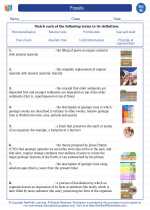Insects
Introduction to Insects
Insects are a class of invertebrates within the arthropod phylum. They are characterized by having a three-part body (head, thorax, and abdomen), three pairs of jointed legs, compound eyes, and typically one or two pairs of wings. Insects are incredibly diverse and can be found in almost every habitat on Earth.
Anatomy of Insects
Insects have a hard exoskeleton made of chitin that provides protection and support for their bodies. Their bodies are divided into distinct segments, and they have specialized mouthparts for feeding. Insects also have a highly efficient respiratory system consisting of tracheae for gas exchange.
Life Cycle of Insects
Most insects undergo complete metamorphosis, which includes four stages: egg, larva, pupa, and adult. Other insects undergo incomplete metamorphosis, with three stages: egg, nymph, and adult. The life cycle of an insect can vary greatly depending on the species.
Ecological Importance
Insects play a crucial role in ecosystems as pollinators, decomposers, and as a food source for other animals. They also help control populations of other organisms and are involved in nutrient cycling and soil health.
Common Insect Orders
- Coleoptera: Beetles
- Lepidoptera: Butterflies and moths
- Hymenoptera: Bees, wasps, and ants
- Diptera: Flies
- Orthoptera: Grasshoppers and crickets
Study Questions
- What are the defining characteristics of insects?
- Describe the life cycle of an insect that undergoes complete metamorphosis.
- Explain the ecological importance of insects in an ecosystem.
- Name and describe three common insect orders.
◂Science Worksheets and Study Guides Eighth Grade. Fossils

 Activity Lesson
Activity Lesson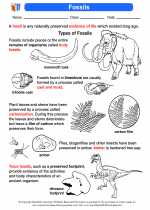
 Worksheet/Answer key
Worksheet/Answer key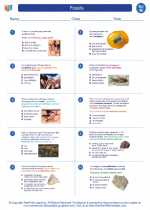
 Worksheet/Answer key
Worksheet/Answer key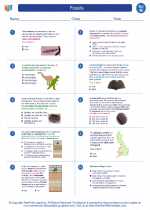
 Worksheet/Answer key
Worksheet/Answer key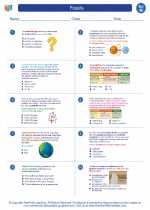
 Worksheet/Answer key
Worksheet/Answer key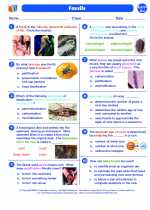
 Vocabulary/Answer key
Vocabulary/Answer key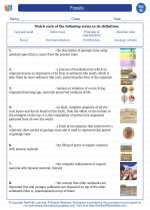
 Vocabulary/Answer key
Vocabulary/Answer key